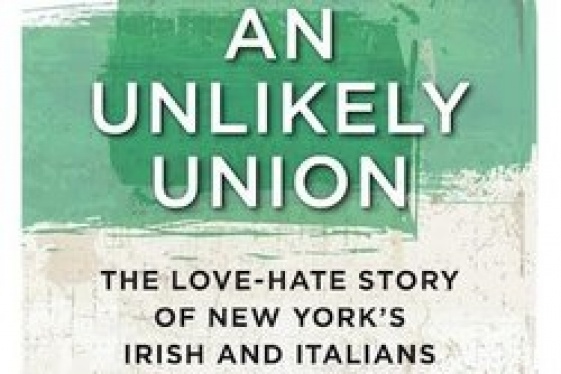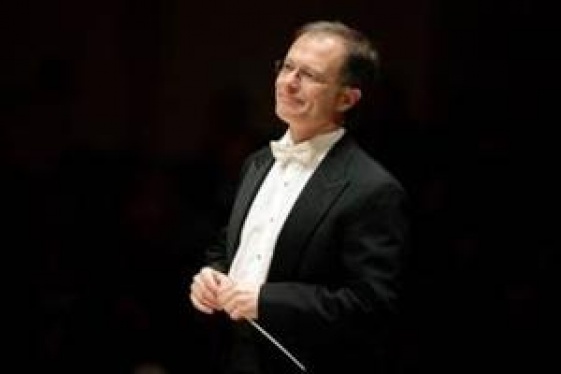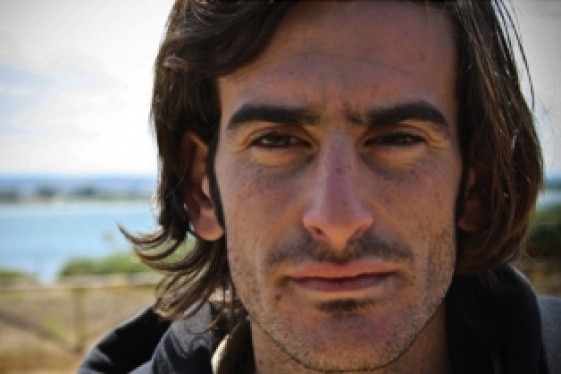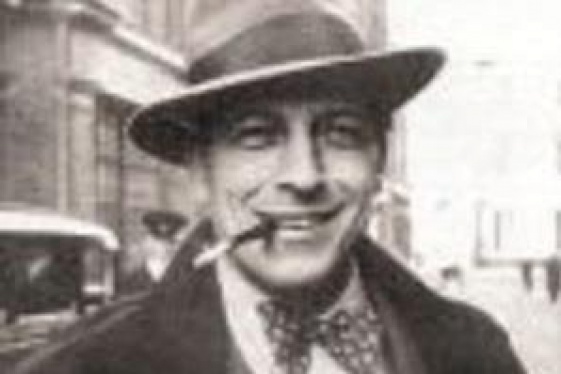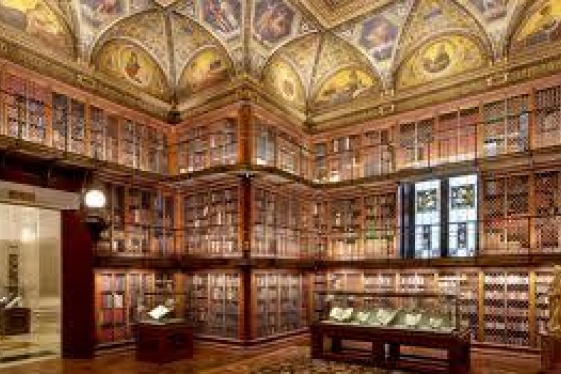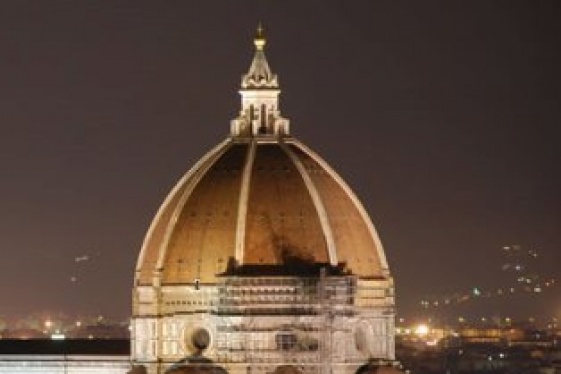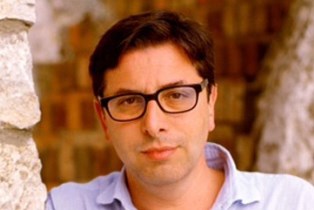
Antonio Monda (Writer)
Cinema: La grande bellezza del rapporto tra Italia e Stati Uniti

No art more than cinema has helped to shape the relationship between Italy and the United States. Cinema has been for the relationship between the two countries a fundamental vehicle of cultural exchange, an imaginative means of historical and social description, and a very strong device of communication and mutual influence. Cinema is also one of the areas in which the Italians and Italian Americans have had more success. Actors and actresses, directors, writers, costume designers, musicians, art directors ... in any field in the movies industry in the United States, and therefore in the whole world, there are Italian names of enormous charisma, fame and talent.
We are going to talk about this with one of the leading experts on this topic, and one of the most famous Italians in New York: Antonio Monda is a Professor of cinema at NYU, organizes events in Italy and the U.S., writes for the Italian press and is the author of successful books. He also organizes private meetings among persons of prestige and success that meet and exchange ideas at his house, according to a format as simple as winning: that in Italy we call "salotto" (the Italian translation for "living room") but has nothing to do with those Roman "salotti" so well represented in the Italian film that just this week has won the Golden Globe Awards, "The Great Beauty". We meet Antonio Monda at one of his lectures - just in Rome - on JFK and the cinema, and we thank him very much, being long admirers of its activities.
Professor Monda, yours is one of the best attended "salotto" (or rather, to use your words, "laboratory of ideas") in New York. How did this started?
Yes, actually I do not love the Italian term "salotto" (living room) because in Italy has a light, futile, frivolous connotation, which is the opposite of what I try to do. I am a man from southern Italy, used to always invite people at my house - this is the normal tradition in my family - and I was taught that the exchange of ideas is the most important and richer thing than can be done.
I arrived in New York without a penny: the early years I lived thanks to my wife's job, she worked at ICE in New York, while I was a super in a building. Even then we began to invite some friends or people I had just met through the interviews I was doing and I still do for the Italian press, and thus everything was born almost by chance. My guests, sometimes even very famous, realized that they had nothing to fear from me: on the contrary they learned they could discover the pleasure of exchanging of ideas, and of course to be able to eat very well, because I'm lucky to have a wife who is also an excellent chef. Then there is the carefreeness and the pleasantness of meeting people without ulterior motives - there are no photographers or journalists, and these are no business meetings - if not to egt together and know interesting people and exchange opinions with them: I learn a lot, and occasionally maybe I say something too.
Your career seems to us the actual realization of the American dream: you now teach at New York University ...
It's true, today I am an Associate professor at Tisch, the film school at New York University. To think that thirty years ago Martin Scorsese had the chair I have now, of course, is a huge honor for me. Actually, even this has a very simple story: I had a meeting with the dean, and he appreciated my work so he decided to give me a chance to do some courses as an adjunct professor; and after that, I won the chair.
How would you describe the relationship between Italian cinema and American cinema?
They are totally intersected one another. Consider how "Paisà" by Roberto Rossellini has influenced Martin Scorsese, who after seeing it knew he wanted to make movies. Consider how much "Easy Rider" owes to "Il Sorpasso" by Dino Risi, or as "Goodfellas" was influenced by "Divorzio all'Italiana" by Pietro Germi – Scorsese himself told me so. These are just three examples of how the great American cinema has enjoyed and was influenced by the great Italian cinema.
Vice versa Italian cinema for many years has been learning styles, languages and themes from the great American cinema and from the culture of this great country: today even "Il capitale umano" - the new film by Paolo Virzi, a talented Italian director who has always made Italian comedies – was inspired by an American novel. There is a great exchange, a continuous osmosis between the two film industries and also between the two cultures.
What role did cinema have in the evolution of your experience as a passionate Italian cinephile in America? In this area we can say that there is a definite turning point, which is given from "The Godfather" ...
First of all it must be said that "The Godfather" is an absolute masterpiece, one of the greatest films in the history of cinema. Of course, it is about a tragedy, the life of a crime family: it is romantically narrated, often even taking the parts of the family, but it remains a criminal matter.
In my development, I had a big impact from the films of the great wave that came immediately after, in the mid-70s, born on the edge of the fall of the studio system: when the method of making films in the majors gave way to a new generation of directors which included Francis Ford Coppola, Martin Scorsese, Steven Spielberg, Peter Bogdanovich, William Friedkin, Brian De Palma, John Milius, Goerge Lucas and others. Those movies marked the Hollywood renaissance of the '70s.
From the point of view of the Italian emigrated to America, was there a cinema personality with the same scope and impact that Enrico Caruso had in music, as a form of redemption against the discriminations?
Actually, no. In the movie business, the great boom of Italian Americans came much later, as I said it dates back to the '70s: unless you think about Frank Sinatra, who was an actor but first of all a great singer.
Is it true that in the American cinema it is hard to find not negative Italian or Italian-American characters?
It is quite true. There are very few attempts that go in the opposite direction: I can think of "Marty", a beautiful film by Delbert Mann with Ernest Borgnine, about the love story of an Italian-American, an ugly man who works as a butcher; or "Mac" by John Turturro, which tells the story of the dignity of some Italian Americans carpenters. Of course things change, but it is true that for too many years, because of the stereotypes the Italian-Americans in the movies were almost always "mafiosi" or criminals.
You have taught, directed a film and several documentaries, written books and articles, organized public and private events: and everything with passion, dedication and success. Your last book, "La città nuda. Le mille anime di New York" has been recently released. If you had to choose one of these things, which would be?
Writing.
You know Paolo Sorrentino, and in his penultimate film, "This must be the place", produced in the United States, you also appear in a small cameo. We dare not ask you a prediction about the chances of victory of "The Great Beauty", his last movie, which is nominated for an Oscar award for best foreign language film: we simply cheer as we normally do for the national football team. Just to begin (in the United States), it won the Golden Globe Awards. We ask you, since you grew up and studied in Rome, to tell us if the movie describes well some parts of the Roman today's life, and if it really reminds the works of Federico Fellini.
I really admire Paolo Sorrentino, and I, too, loved "The Great Beauty": I'm rooting for him, and I wish him the best. I consider his movie important, strong and powerful: I have seen in person how very great personalities of literature and cinema are in love with "The Great Beauty." And all the American reviews are enthusiastic, they found it wonderful.
I also think it represents with great skill a certain Roman lifestyle, which, alas, is very decadent and does exist today. The film definitely has something of Fellini, but Sorrentino himself declared it.
You may be interested
-
An Unlikely Union: The love-hate story of Ne...
Award-winning author and Brooklynite Paul Moses is back with a historic yet dazzling sto...
-
Cathedral of St. John the Divine, Oratorio S...
For the first time ever, The Cathedral of St. John the Divine, in collaboration with the O...
-
Davide Gambino è il miglior "Young Italian F...
Si intitola Pietra Pesante, ed è il miglior giovane documentario italiano, a detta della N...
-
Garibaldi-Meucci Museum to Celebrate Ezio Pi...
On Sunday, November 17 at 2 p.m., Nick Dowen will present an hour-long program on the life...
-
Italian Master Drawings From The Morgan (Onl...
The Morgan Library & Museum's collection of Italian old master drawings is one of the...
-
Italian Women Trailblazers - Young Professio...
April 16, thursday - 6,30 EDTAzure - New York, NY - 333 E 91st St, New York 10128Tick...
-
La Befana makes her way to the Garibaldi-Meu...
Saturday, January 10at 2:00pm - 4:00pm, Garibaldi-Meucci Museum 420 Tompkins Ave, Staten I...
-
Lecture and Concert that bring Italy to New...
Saturday, february 28 - 7 pm ESTChrist & Saint Stephen's Church - 120 W 69th St,...





